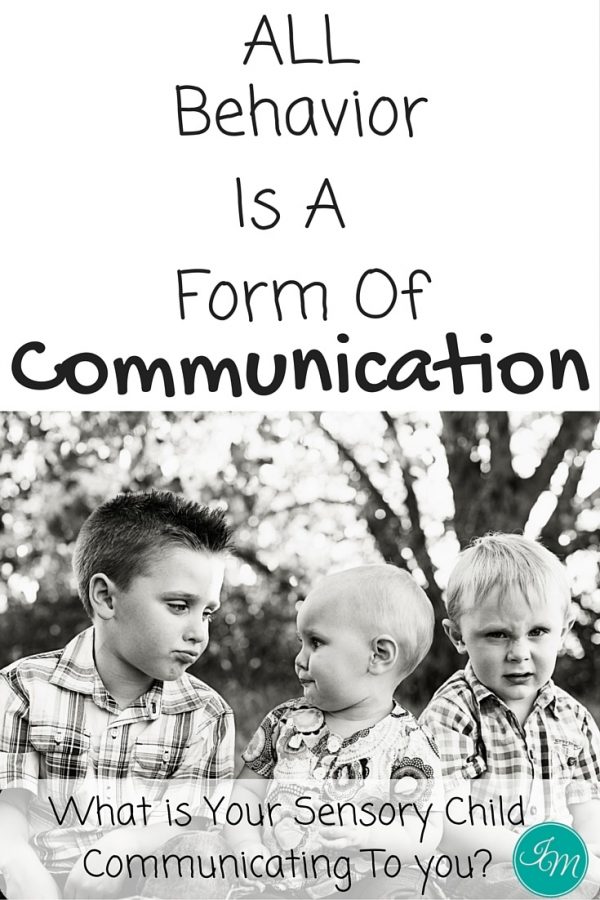How to Turn Confrontation into Cooperation With a Sensory Kid
Raising a sensory kid can test any parent’s skills in turning a confrontation into cooperation with your child.
Reduce the arguments in your home with these terrific tips that will deepen your connection with your child and lower the stress of everyone in your family.
Be sure to learn more about Sensory Processing Disorder and my parenting tips on how to support your child with sensory challenges.
This post contains affiliate links.
How to Turn Confrontation into Cooperation With a Sensory Kid
Syrup. That’s what started it today.
After serving his pancakes EXACTLY the way he requested, I walked away knowing I had done it right this time… only to hear the whining start, then escalate… just like it always does with my child who has sensory differences.
“Maaawwwmmmmm! It’s not the RIGHT syrup!!!! I hate this syrup! Now my pancakes are RUINED!!! I HATE breakfast! You NEVER do this right! I’m SO mad at you!”
My heart sinks as I know full well we’ve entered into a meltdown and confrontation.
I know I can’t push him because it makes things worse.
But, the other alternative is to allow him to continually shout hateful, rude, and verbally abusive comments every time he becomes frustrated.
What kind of mom does that make me?
Have I lost all control?
Am I really afraid of my 6 year old?
Am I creating a monster?
Those are the questions that plagued my mind daily as I agonized over ways to approach these meltdowns before learning a simple routine that would change these meltdowns dramatically.
That all changed two years ago when I allowed myself to see things from a different perspective and turn confrontation into cooperation.

A Change in Perspective
I used to believe the age old “parents are in charge of controlling their kids’ behavior” theory.
Thankfully, my perspective has changed.
The author Byron Katie says it all when she says there are three types of business in the world “my business, your business, and God’s business (anything involving nature).
Of those the only thing I can really control is MY business.”
All other business can either be fought against, or accepted, but it cannot be controlled.
Knowing that I cannot control my kids’ behavior helps me approach situations like this very differently, in a more productive and positive way.
That same approach can work for you too, alleviating a lot of power struggles, fights, and lengthy meltdowns.
So what exactly does that look like?
I’ll show you!
All Behavior Is A Form Of Communication

My child development background has ingrained in my mind this thought “All Behavior is a Form Of Communication.”
This means, when my kid is throwing a fit, screaming that he hates everything, he is communicating something.
My job then is not to stop the communication, but to figure out what is being communicated by going through these 4 steps:
1. Understand what is being communicated by looking for the deeper need
A fairly natural parental reaction is to try to stop the crying/whining/etc. by giving in or punishing it.
When we go back to Byron Katie’s mantra, we realize the crying is NOT in our control, so we don’t need to worry about how to stop it.
Letting go of that responsibility is hard, but it simply takes a little mindset shift.
By letting go of that duty, a parent frees themselves up for looking at what caused the meltdown in the first place.
Sensory kids tend to be explosive and inflexible when something doesn’t turn out the way they expect.
Other common causes of meltdowns are; sensory overload, not being able to satisfy a sensory need, lack of communication skills, or need for a better routine to provide more predictability to their unpredictable environments.
When my son hits a meltdown I go through this mental checklist to see which skill or need is lacking then move on to the next step.
2. Support that internal or sensory need
When any sensory kid hits meltdown mode, logic has ceased, rationality has gone out the window, and any effort to do anything other than support the sensory need will be met with HUGE opposition.
Any parent who has tried forcing a child to do anything during a meltdown knows exactly what I mean… it’s not pretty.
In that light, it is really best to not even try to force or change anything during a meltdown but rather support your child’s sensory needs until they can regain normal, rational thinking again.
There isn’t one right way to do this, but some of the most common and most effective methods of supporting the sensory needs during a meltdown are:
- offer a cool down spot
- hold your child (if he/she wants it), gently swaying or bouncing until the child is calm
- offer a comforting item (blanket, special stuffed animal, etc.)
Whichever method your child prefers is the one that will be right for you.
3. Communicate when the time is right
When you feel your child calm down, when you hear rational thoughts coming from your child’s mouth, then you can start to open the doors of communication.
Start by asking questions in a way that doesn’t cause blame or shame to your child (this is a sensitive time that can quickly go back into meltdown mode if not handled correctly).
Ask things like…
“what was your body feeling when this happened?”
“what is it that you were thinking when this happened?”
“what do you feel your body needs right now?”
This conversation can ease your child back into a state of rational thinking and get you on the path to the next step.
4. Come up with a plan together
Now that you know what went wrong, you can start to create a plan to avoid the situation in the future. Ideally this should be a joint effort between you and your child involving a lot of questions, a lot of listening, and a lot of compromising.
Generally speaking it is a good idea to refrain from saying “I think you should” or placing blame in any way.
This is a time to walk the child through the process of coming up with a better way of communicating that disappointment next time it happens.
Typically it is a good time to create a routine around difficult transitions or situations, come up with a little “code” between you and your child as a way of communicating when he/she is in sensory overload, or anything you see that might be necessary.
Once this pattern is part of your regular routine when a meltdown happens you will see a few things happen.
Productive communication will increase, compromising skills will increase, tantrums will decrease, and a relationship of trust will replace the fighting for power that existed before.
The need to gain power and control is no longer a need with this plan, which allows for positive outcomes to take place of those previous struggles.
The Results
As a result of relinquishing the idea that I need to control, I’m not afraid of him, he’s not afraid of me, we now have a relationship of respect and support and have results like the one this morning.
After crying, my son was invited to go to his cool down spot.
He went willingly and a few minutes later came back to his plate with the syrup he HATED and had started this whole charade.
He sat down and calmly asked; “do we have any other syrup mom?”
He did it.
He solved his own problem.
He thought of a solution.
He calmed himself down.
That is a win for everyone!
Had I fought him, forced him to come to a conclusion, pushed him until he was mad at me, he wouldn’t have had that opportunity to come back to me.
He would have been mad at me because of the resistance I placed against his verbal outlash.
Because there was no resistance, because I didn’t jump in and cater to making everything right, he was allowed to come back when his body was ready, when his brain could think logically, and find his own solution.
Have I created a monster?
If a monster is a child who can express his feelings and emotions freely, knowing that he won’t be catered to, but will be supported until he can find a more appropriate and productive way to act after disappointment, then I guess I have.
That is how we have turned confrontation into cooperation.
For further reading about Sensory Processing Disorder:
The Out-of-Sync Child: Recognizing and Coping with Sensory Processing Differences Raising a Sensory Smart Child: The Definitive Handbook for Helping Your Child with Sensory Processing Issues
Raising a Sensory Smart Child: The Definitive Handbook for Helping Your Child with Sensory Processing Issues Understanding Your Child’s Sensory Signals: A Practical Daily Use Handbook for Parents and Teachers
Understanding Your Child’s Sensory Signals: A Practical Daily Use Handbook for Parents and Teachers The Out-of-Sync Child Has Fun, Revised Edition: Activities for Kids with Sensory Processing Disorder
The Out-of-Sync Child Has Fun, Revised Edition: Activities for Kids with Sensory Processing Disorder
Mom Smarter, Not Harder! Find more insightful parenting tips on Mommy Evolution!
About the Guest Author
This post originally appeared on WendyBertagnole.com and is reprinted with permission.
With an undergraduate degree in child development, and a master’s degree in special education, this foundation was a springboard for Wendy in helping kids and families to see the root of any challenges they face.








